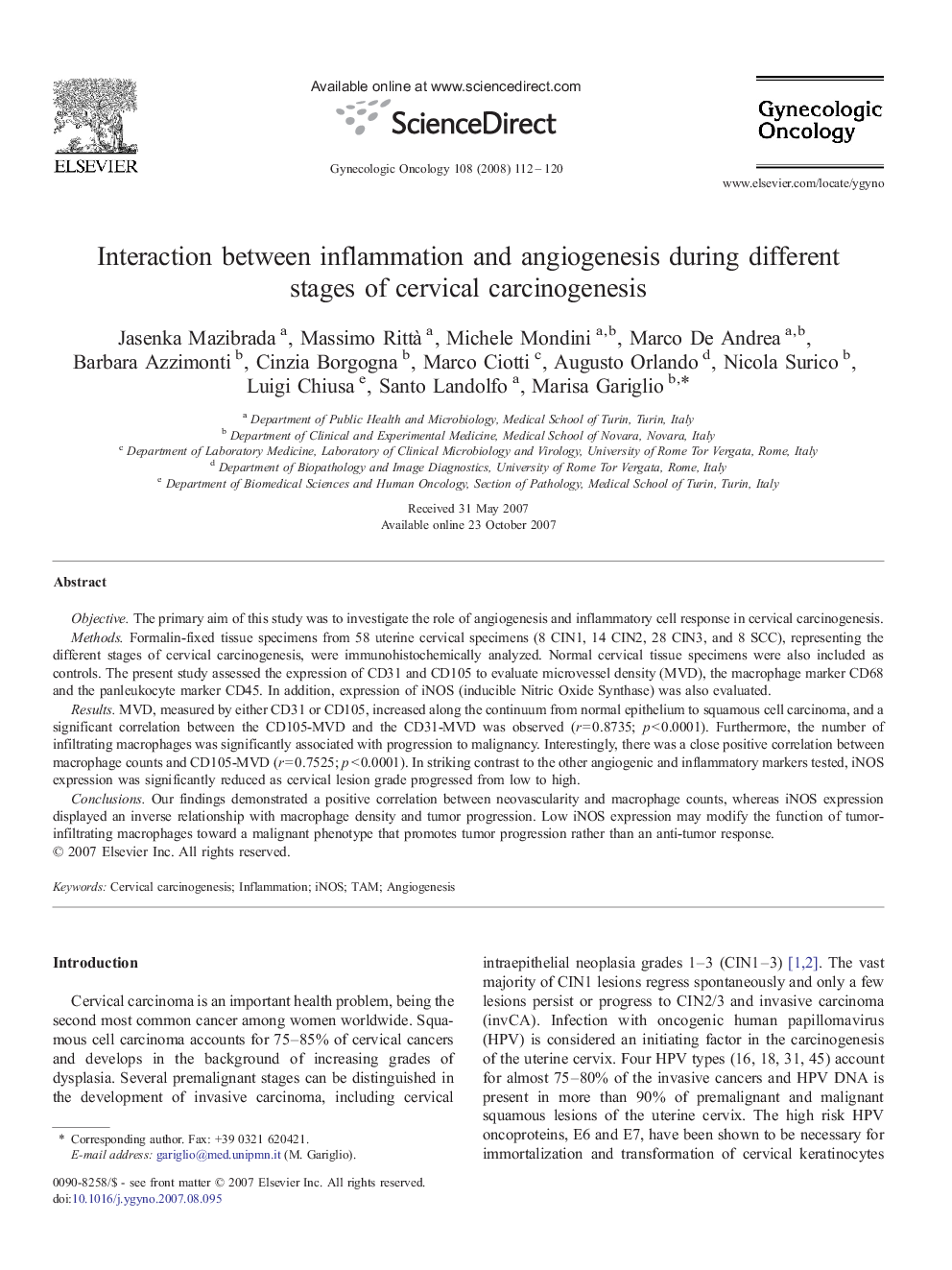| کد مقاله | کد نشریه | سال انتشار | مقاله انگلیسی | نسخه تمام متن |
|---|---|---|---|---|
| 3943383 | 1254103 | 2008 | 9 صفحه PDF | دانلود رایگان |

Objective.The primary aim of this study was to investigate the role of angiogenesis and inflammatory cell response in cervical carcinogenesis.Methods.Formalin-fixed tissue specimens from 58 uterine cervical specimens (8 CIN1, 14 CIN2, 28 CIN3, and 8 SCC), representing the different stages of cervical carcinogenesis, were immunohistochemically analyzed. Normal cervical tissue specimens were also included as controls. The present study assessed the expression of CD31 and CD105 to evaluate microvessel density (MVD), the macrophage marker CD68 and the panleukocyte marker CD45. In addition, expression of iNOS (inducible Nitric Oxide Synthase) was also evaluated.Results.MVD, measured by either CD31 or CD105, increased along the continuum from normal epithelium to squamous cell carcinoma, and a significant correlation between the CD105-MVD and the CD31-MVD was observed (r = 0.8735; p < 0.0001). Furthermore, the number of infiltrating macrophages was significantly associated with progression to malignancy. Interestingly, there was a close positive correlation between macrophage counts and CD105-MVD (r = 0.7525; p < 0.0001). In striking contrast to the other angiogenic and inflammatory markers tested, iNOS expression was significantly reduced as cervical lesion grade progressed from low to high.Conclusions.Our findings demonstrated a positive correlation between neovascularity and macrophage counts, whereas iNOS expression displayed an inverse relationship with macrophage density and tumor progression. Low iNOS expression may modify the function of tumor-infiltrating macrophages toward a malignant phenotype that promotes tumor progression rather than an anti-tumor response.
Journal: Gynecologic Oncology - Volume 108, Issue 1, January 2008, Pages 112–120